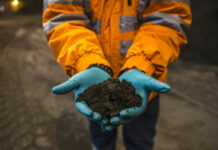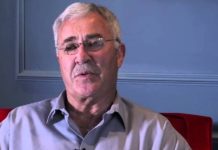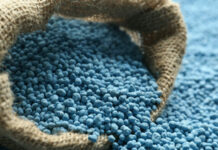
[miningmx.com] — AUSTRALIA’S minority government said on Wednesday that plans for a controversial profits-based tax on coal and iron ore miners were “dusted and settled”, despite crucial Green and independent lawmakers pushing for the inclusion of gold.
Green and independent lawmakers, whose support is vital for Prime Minister Julia Gillard’s Labour administration, are increasingly critical of the tax, expected to be approved in parliament this year as the government looks for budget savings to help deliver a promised surplus in fiscal year 2012-13.
“I simply say to the Greens and independents, it’s about time they moved on. This is an appropriate taxation outcome,” Resources Minister Martin Ferguson told Australian radio.
“The government went to the last election with a very clear proposal on the mining tax. That effectively meant that we would confine the tax to coal and iron ore. Now, we’ve got no intention of breaking our word,” Ferguson said.
The influential Greens, who control the balance of power in the upper house, want the government to widen the tax to include gold mining, but party leader Bob Brown said he would not insist on changes to pass the laws, which the main conservative opposition bloc would scrap.
Brown said a decision by Gillard last year to limit the tax to coal and iron ore miners had robbed the budget of billions of dollars of potential revenue, as soaring world gold prices could reap A$3.5bn extra in revenue over three years.
“We are not going to block the government’s tax. But we do know that A$100bn will be lost over the next 10 years on average through not taking Treasury’s advice, as the Greens want to,” Brown said, referring to estimated income from a broader tax proposed by former prime minister Kevin Rudd.
NEGOTIATED TAX
The contentious 30% tax on mining profits, aimed at big iron ore and coal firms, is forecast to reap A$7.7bn in its first two years from July 1, 2012, helping the budget return to surplus.
A 40% tax proposed by Rudd was dumped last year after miners launched a concerted campaign against it. Gillard ousted an embattled Rudd in a party coup and negotiated a narrower 30 percent tax with big miners BHP Billiton , Rio Tinto and Xstrata .
Brown said while gold was Australia’s third-largest resource export, most producers were foreign owned and most of the profits leave Australia.
Top gold miners in Australia, which is projected to produce 277 tonnes of gold in fiscal year 2012, include Newcrest Mining .
The Greens leader said he would push for changes to the tax, which is being closely looked at by other resource-rich countries in Africa and South America, at a national tax summit planned by the government in the capital Canberra next week.
“Australia is facing a squeeze in government spending,” Brown said. “Why shouldn’t we be properly taxing the current resources boom, where the money is largely otherwise going to flow overseas.”
Independents Rob Oakeshott and Andrew Wilkie are both critical of the tax and have said they plan to work with the government to improve it.
The government recently released a second draft of the mining tax legislation and ruled out its inclusion, along with a planned carbon tax, at next week’s tax summit to avoid sparking new fights with business groups.
The changes included measures to crack down on miners seeking to evade the tax impact after OECD warnings that global miners were setting up transfer pricing operations to shift profits and avoid their tax obligations.
While opponents of the tax, including smaller miners, have argued the tax is hurting Australia’s sovereign risk reputation overseas, Ferguson said foreign money continued to pour in with A$140bn in new resource projects underway.
“Despite the proposal to introduce a mining tax, and I might say, a tax on carbon, the investments continue to come our way,” he said.









